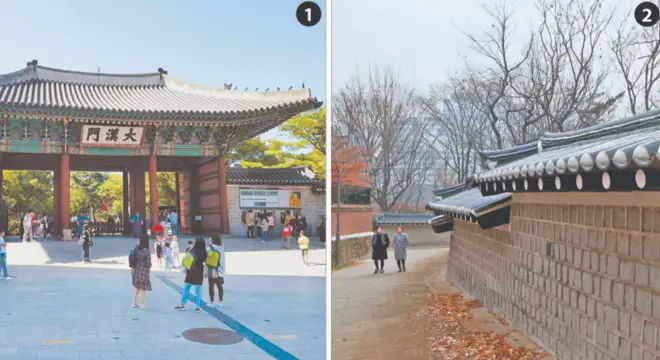|
Getting your Trinity Audio player ready...
|
What happens when a country known for its blend of tradition and modernity starts opening its old homes to the world? Can aging city houses become windows into Korea’s cultural soul? And how is the government making that possible while keeping safety a top priority?
As South Korea’s tourism industry is undergoing a record recovery, the government is making a big policy change. They have loosened strict rules on guesthouses, allowing homes that are over 30 years old to register as accommodations for foreign tourists – if they meet safety regulations.
In this article we will unpack what has changed, why it matters, and how these civilized reforms will transform both local communities and the traveler experience.
Context & Policy Background
Following the pandemic, South Korea’s tourism industry swiftly regained its momentum. The demand for inbound travel has surged, prompting the government to set a goal of welcoming 18.5 million foreign visitors in 2025 and 30 million visitors by 2028.
As part of modernizing its tourism strategy to facilitate the accelerating supply of travel, the 10th National Tourism Strategy Meeting held on September 25, 2025, focused squarely on regulatory innovation as one of the pillars for revitalizing tourism. An issue raised at the meeting was a dull legislative requirement prohibiting homes over 30 years old from being registered as guesthouses, even if they were safe and structurally sound.
As a result of the earlier stipulation, a number of urban dwellers — particularly in more established neighborhoods in the city of Seoul such as Jongno and Mapo — were effectively disqualified from participating in the booming tourism industry. The consequence of this situation was a scope of
economic opportunity for the locals but, simultaneously, a lack of authentic and unique lodging options for visitors.
Major Changes in the New Guidelines
4.1. Building & Safety Criteria Relaxation
As part of this new approach, the Ministry of Culture, Sports and Tourism has now removed the age restriction from guest houses. Homes that are more than 30 years old can now register as guest houses to host foreign travelers as long as they meet safety requirements outlined in the Building Act and Building Management Act.
Local governments will do much of this work. They will conduct verifications that ensure the potential guest house is not listed as a “violation building” based on current building codes, and they will, if necessary, consult with an architect or structural safety professional to ensure safety. This is a reasonable compromise between flexibility and safety to allow more homeowners to take advantage of tourism in Korea without sacrificing the required safety.
The change removes references to the previous “aged or substandard building” from the guide to allow to retain the quaint charm of traditional homes as a guest house for visitors.
4.2. Language & Foreign-Language Service Revisions
Another major update involves language service requirements.
Earlier, hosts were required to prove English (or another foreign language) fluency through standardized test scores — specifically a TOEIC score of 760. This rule discouraged many willing homeowners who lacked formal language proficiency but could otherwise provide excellent hospitality.
Now, the focus has shifted. Hosts can use translation apps or digital tools to communicate effectively with guests. As long as they can deliver essential information about facilities, services, and Korean culture, they will be considered capable service providers.
This change acknowledges modern realities — technology can bridge language gaps, making hosting more accessible. The goal is not perfect English, but meaningful communication and cultural connection.

Official / Legal Aspects
The new rules are part of reforms to the “Oedomin Business”, which is the legal term for Korea’s urban guesthouse business for foreign tourists.
According to updates reported by CM Asiae, the Ministry has deleted the clause that automatically disqualified buildings older than 30 years. Now, local authorities must evaluate safety based on actual condition rather than age.
The Ministry emphasized that this move is part of its “policy and industrial base innovation” — one of three major innovation initiatives set during the National Tourism Strategy Meeting. It reflects a more field-based approach, aligning national goals with community-level realities.
Complementary / Related Policy Changes
These reforms align with other tourism-related measures introduced this year.
From October 16, 2025, all Airbnb hosts in Korea must register their business, and unregistered properties will no longer be bookable. This ensures that lodging operators comply with legal standards and safety requirements.
Additionally, there are ongoing restrictions on studio apartments and officetels being used as guesthouses due to zoning and commercial classification issues. These steps, alongside the relaxed homestay rules, create a more organized and transparent lodging ecosystem.
Motivations & Objectives Behind the Changes
The government’s motivation is clear — to lower the barriers for locals to join the hospitality market while ensuring Korea remains an attractive destination for global visitors.
Key goals include:
- Enabling residents to earn income from tourism.
- Expanding lodging options across urban centers.
- Promoting authentic, cultural, and immersive travel experiences.
- Encouraging community-based tourism over large-scale commercial hotels.
- Supporting Korea’s broader goal of achieving record foreign visitor numbers.
By integrating older, character-filled homes into the market, the country can preserve cultural identity while modernizing its tourism strategy.
Expected Impacts & Challenges
8.1. Positive Impacts
The benefits are wide-ranging:
- Inclusion of more homeowners in the tourism economy.
- Increase in lodging supply in dense, older districts.
- Authentic cultural experiences for tourists through homestays.
- Economic uplift for small communities and local economies.
Travelers can now enjoy the warmth of Korean homes, while locals can turn unused space into opportunity.
8.2. Potential Challenges / Risks
However, challenges remain:
- Ensuring consistent safety enforcement across cities.
- Standardizing evaluations across local governments.
- Managing language or cultural misunderstandings despite translation tools.
- Monitoring illegal lodgings or unregistered hosts.
- Addressing potential pressure on existing hotel and Airbnb markets.
While the reforms are promising, successful implementation will depend on effective oversight and community cooperation.
Case / Example Scenarios
For example, a 35-year-old home in Seoul’s Bukchon district, once ineligible, can now apply for registration after passing safety checks. The homeowner can welcome foreign visitors, use a translation app to communicate, and offer guests an authentic glimpse into Korean family life.
Similarly, someone in Busan could rent out a traditional home near the beach, creating new cultural and economic connections that go beyond typical hotel stays.
Even if a home was previously marked as a “violation building,” owners now have a path to rectify issues and apply after making structural improvements.
Conclusion
South Korea’s decision to relax urban guesthouse regulations marks a transformative step in its tourism evolution. By removing unnecessary restrictions on older homes and embracing modern tools for communication, the government has created space for both economic opportunity and cultural exchange.
As foreign arrivals continue to surge, these changes promise a new era of community-driven hospitality — one where locals become cultural ambassadors, and travelers get to experience Korea not just as visitors, but as welcomed guests in the heart of its cities.
In balancing safety, accessibility, and growth, South Korea has shown how thoughtful policy reform can turn old walls into new doors — open to the world.


